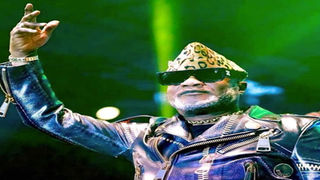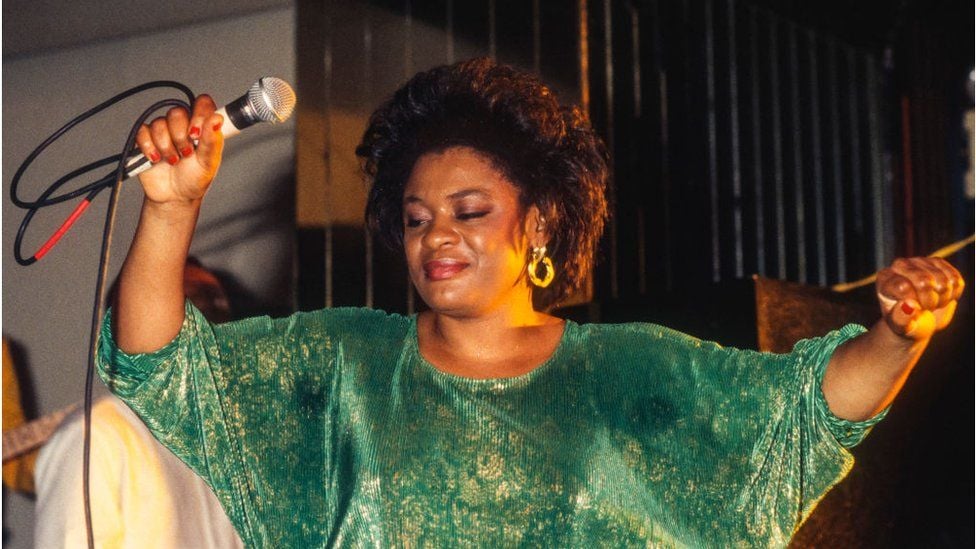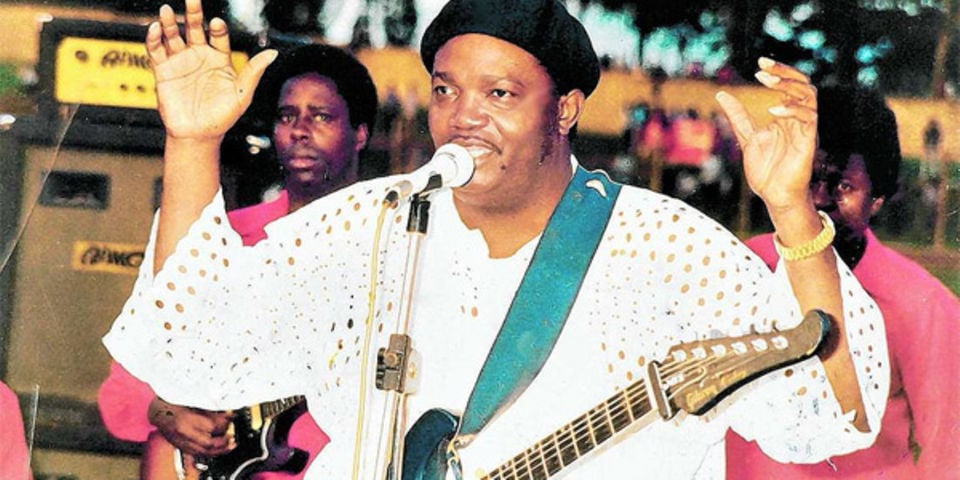
Musician Koffi Olomidé. PHOTO/HANDOUT
|Entertainment
Prime
Koffi crowns himself rumba GOAT but how?
What you need to know:
- Empty claim. The greatest of all time is always subjective but even for all his self-importance, Koffi Olomide stretches his value in thinking he has surpassed Franco
Antoine Christophe Agbepa Mumba is not done yet. The Congolese musician known professionally as Koffi Olomidé has crowned himself the greatest of all time.
“I’m the greatest of all time,” Koffi told a YouTube programme last week. He has a string of shows and wants to promote his latest album, Legende de Diamond.
Even Koffi’s mother would have paused there. But not the 66-year-old evergreen musician – he is willing to invoke the name of his daughter to build a claim that would leave Tabu Ley Rochereau bemused.
And that is before one even brings up Franco, the man immortalised by President Mobutu Sese Seko as ‘Grand Maitre.’
Yet Koffi is bold in stating his claim.
“I say this with no false modesty. I’ve 24 successful albums, the second musician after me has less than 10 albums. I’m the GOAT, the god of Congolese music,” Koffi said.
He did not name the “second musician”.
There is a lot of truth in Koffi’s claim. He has the crown. But there is also absurdity in the claim; his crown is only princely, like what the Congolese call PDG (pronounced pedeshe) or Président-Directeur Général.
Koffi is the pedeshe or CEO of his generation, and one in self-actualisation.
“Koffi is the GOAT of his generation. I repeat, of his generation,” says Martins Ramogi, a Kenyan who has played rumba with various bands in and around Mombasa.
“Kofii has outlived his generation, outperformed his generation. He has been consistent unlike Zaiko Langa Langa, Werrason, JB Mpiana and others. He rules over a broken music kingdom after the greats have left.
“He cannot be compared to Franco or Tabu Ley and he knows that. He is smart enough to claim he is the greatest but cynically refuse to add ‘off my generation.’”
Sammy Omollo, a Kenyan rumba researcher, thinks the man he adores has gone overboard, noting Koffi’s recent demand to the State to declare him as an institution.
“We only have one GOAT, the unrivalled Luambo,” he said.
Reign of generations
Koffi has lived through two generations of rumba – the third and fourth – but these have no say on the second generation of the Francos, Leys and Verckys. These are the musicians who had built on what Paul Ebengo Dewayon, Henry Bowane, Wendo Kolosoy and Lucie Eyenga started in the 1940s, perfected it and served it to a global audience.
“After Franco died, Koffi saw a vacuum, came up with a unique style that was more appealing to the youth,” says Omollo.
Wenge also appealed to the youth during the era but their style was party-music, Koffi, who focused on ballads, told the Afropop Worldwide magazine last year that his music is not only to dance and to jump to; music is also meant to make the heart vibrate.
After years of upheavals in which he battled rape charges in a Paris court and saw his concerts around the world cancelled after he was caught on camera kicking his dancer on arrival in Nairobi in 2016, Koffi believes he is back.
A collabo with Felix Wazekwa is in the studio and Légende ed Diamond, his 25th record and first in five years, appears to be at the centre of his GOAT claim. He has been releasing the 14 tracks on the album in installments, starting with Mbembe – which praises snails as a delicacy – on Christmas Eve.
“In 2022, I was fought. There are always people who don’t want to see me at the head of Congolese music,” says Koffi. “My daughter Didi Stone always tells me that I am their god and that I don’t have to worry about what other people say about me.”
Vindictive man
The man born on a Friday (Koffi) isn’t a riff-ruff who took solace in music. With a degree in economics, he could have been a university professor by now. But Koffi chose music.
“My father told me that I couldn’t be a musician, a singer if I didn’t get a degree, a license. That’s what I did. I got a small one in 1981 at Bordeaux University,” said the man who believes he is more of a guitarist than a singer.
“I started by playing guitar when I was a student. I love guitar.”
Starting out with the mentor whose funeral he could not attend because each swore never to mourn the other after their bitter fallout, Koffi rose to form Quartier Latin (QL), the band with which he has been Mopao Mokonzi (the Big Boss).
As he gained fame, Koffi dubbed his style Tcha-Tcho, a slower version of Soukous. Tcha-Tcho is closely intertwined with Pachanga that Tabu Ley and later King Kester Emeneya weaved in studios.
“Tcha-Tcho is me. Tcha-Tcho is my soul. People feel the differences about my style from traditional rumba. I do music differently,” Koffi told Afropop Worldwide.
The recent reconciliation with Wazekwa is one of the few times Koffi has gone back on himself. The other was in 1997 when he included the song, Dessin Anime, in ‘Ultimatum’ album. Scola Miel’s composition from 1994 had been shelved by Koffi after the dancer cum singer had quit QL.
But with Wemba, Koffi reconciled only to get back at him. Wemba tapped Rosette Kamono, Koffi’s favourite dancer, in 1996. And it was like crossing the Rubicon.
When Wazekwa got the two back together, many thought the hatchet had been buried. They released their collaborative album, Wake Up, only for Koffi to pocket the huge proceeds and remind Wemba that he had fed off his (Koffi’s) talents in the years past.
Not done, Koffi released Malanda Ngombe (follow the cow) in Attentat album (1999) in which he told Wemba that even when they were together at Viva La Musica, he was the table and Koffi the goods on that table.
Wemba, Koffi sang, had stolen the goods.
“The great Mopao is me… You will remember the person who made you is me. Your punishment in life you will be forever behind me. Follow the cow,” he sang.
That was for the ages, a man who only understands humility when it brings him the money to run his sapeur lifestyle.
Koffi Vs Franco
A day and night comparison
Koffi’s 25 records are rich with some 262 songs. With another five collaborating albums, his would tally to 300 songs. To put it into context, Mopao Mokonzi would need another lifetime career to reach half of what Franco produced. Franco, who died aged 51 in 1989, produced mind boggling 1,200-plus songs and more than 100 records.
At the time of his death, Franco was planning to open a third branch of his TPOK Jazz band in the US after that in DR Congo and Belgium. He led at least 70 musicians under one roof, while Koffi’s on-and-off and sessional QL members number just 30, with Vice President Binda Bass the constant since 1995.





